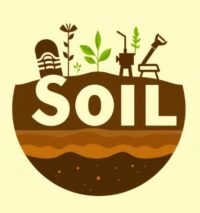
Aims
The Journal of Soil Engineering and Foundations aims to serve as a leading platform for the dissemination of innovative research and practical advancements in the fields of soil engineering and foundation design. Our primary goals are to:
- Promote the exchange of ideas and knowledge among researchers, practitioners, and educators in soil mechanics and foundation engineering.
- Encourage interdisciplinary collaboration to address complex challenges in geotechnical engineering.
- Foster the development of sustainable practices and technologies in soil engineering and foundation design.
- Provide a forum for discussing emerging trends, methodologies, and technologies in soil and foundation engineering.
Scope
The scope of the Journal of Soil Engineering and Foundations encompasses a broad range of topics related to soil mechanics, geotechnical engineering, and foundation design, including but not limited to:
- Soil Mechanics:
- Fundamental studies on soil behavior, including shear strength, compressibility, and permeability.
- Investigations into the physical and chemical properties of soils and their implications for engineering applications.
- Advanced laboratory and field testing techniques for soil characterization.
- Foundation Engineering:
- Design and analysis of shallow and deep foundations, including piles, caissons, and mat foundations.
- Case studies and practical applications of foundation engineering principles in various soil conditions.
- Innovative foundation systems and techniques for challenging sites.
- Geotechnical Investigations:
- Site characterization and exploration methods for geotechnical projects.
- Risk assessment and management in geotechnical engineering.
- Use of remote sensing and geophysical methods in soil investigations.
- Slope Stability and Earth Retention:
- Analysis and design of slope stability solutions, including retaining walls and soil nailing.
- Mitigation strategies for landslides and other slope failures.
- Studies on the effects of environmental factors on slope stability.
- Ground Improvement Techniques:
- Research on methods for improving soil properties, such as compaction, grouting, and soil stabilization.
- Evaluations of new and existing ground improvement technologies.
- Sustainable Practices in Soil Engineering:
- Exploration of eco-friendly materials and techniques in soil engineering.
- Studies on the impact of soil engineering practices on the environment and society.
- Geotechnical Modeling and Simulation:
- Development of numerical models and simulations for predicting soil behavior and foundation performance.
- Applications of computational methods in geotechnical analysis.
ISSN:XXX-XXXX
Cite Score:-
Impact Factor:-
Time to First Decision:02 Days
Review Time:30 Days
Acceptance:50 Days
Accept Rate:20%
APC:0.0 USD
No Article found, Please publish the Articles for this JOURNAL
Copyright © 2026. All Right Reserved
